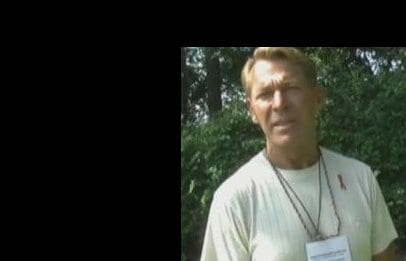Aug 17 is the last day people can submit comments in a public consultation to lift a 20-year ban that keeps HIV-positive people from entering the United States.
Changes to the outright ban were set in motion before a Jun 3 North American Housing and HIV Research Summit conference in Washington, DC. Just days before the conference, it was announced that HIV-positive travelers would be considered for entry into the US — but would need to complete a complicated application process first.
Because many had thought the ban was being lifted outright, a number of poz people planned to attend this conference but the last-minute implementation of a screening process meant that 60 people from around the world were unable to attend the event. A month later, in early July, the US Department of Health and Human Services gave the public until today to provide feedback on further changes to the HIV travel ban. Many hope that, as a result of public feedback, the ban will be overturned.
Bruce House executive director Jay Koornstra had planned to attend the Housing and HIV conference but did not go because he feels that the US HIV travel ban is restrictive, unfair and undemocratic — a policy that exists in only 14 countries worldwide.
“Out of principle, I didn’t go to the housing conference. I am, after all, an executive director of an AIDS organization,” says Koornstra. “I don’t believe in putting red tattoos on the foreheads of HIV-positive people.”
Koornstra feels that the requirements for HIV-positive people travelling to US are contrary to the right to privacy and is irked by the fact that people are required to go through an extensive screening process with no guarantee of entry.
Currently, someone who is HIV-positive and wants to travel to the US would have to:
- Pay $130 USD for a screening process with no guarantee of entry,
- Get a visa a month in advance (even if the person lives near the border and is crossing for the day),
- Prove they have adequate health insurance and medication for duration of stay,
- Sign a statement stating they have received HIV counselling, and
- Sign a statement they will not engage in any unsafe sex acts.
“It’s time the US became a democratic country and showed leadership on AIDS. If they say they’re a democratic country, they shouldn’t be on the same level as Iran [in terms of AIDS awareness and education],” says Koornstra.
Martin Rooney of Surrey, BC was a prime organizer of a travel ban rally that took place on Aug 16 at the Peach Arch in BC. He’s personally invested in this issue after being denied entry to the US after attempting to drive across the border for personal reasons in Nov 2006.
“I just feel this is an invasion of my privacy as a human being. There’s no medical science behind this rule. They’re not closing borders for swine flu and that’s more contagious than HIV.
Help us remove this travel ban by signing this petition,” says Rooney.
“The US HIV travel ban is a disgrace,” says Diana Scholl, spokesperson for Housing Works in New York City. “And we feel it’s necessary to make a statement when we feel something is unjust.”
Scholl says although she wasn’t able to attend the recent HIV travel ban rally in Buffalo, she felt the ban hit close to home when many HIV-positive Canadians couldn’t attend the US Housing and HIV conference.
Larry Bryant, also of Housing Works, resides in Washington DC, and he attended yesterday’s Buffalo-Niagara Falls rally to lift the US HIV travel ban.
“Canadians aren’t the only ones being denied entry into the US. The travel ban is uncivil and it does no good for human rights. We hope after the US lifts the travel ban, it will resonate [for other countries] around the world,” says Bryant.
Christine Campbell of the National AIDS Housing Coalition also hails from Washington DC. She attended yesterday’s Buffalo/Niagara Falls rally against the ban. “Lifting the travel ban is long overdue. We need to ensure the US government allows free travel. We know [now] how HIV is transmitted, and there is no need for the ban to be in place anymore,” says Campbell.
More information about the proposed changes and public comments can be seen at Cdc.gov/ncidod/dq/laws_regs/fed_reg/remove-hiv/index_hiv.htm.
To submit your comments urging the American government to remove the HIV travel ban, email the US Department of Health and Human Services Centers for Disease Control and Prevention (CDC) Consultation at Part34HIVcomments@cdc.gov
Check out our video from the Aug 16 HIV travel ban rally in BC:
Video by Nathaniel Christopher.

 Why you can trust Xtra
Why you can trust Xtra


